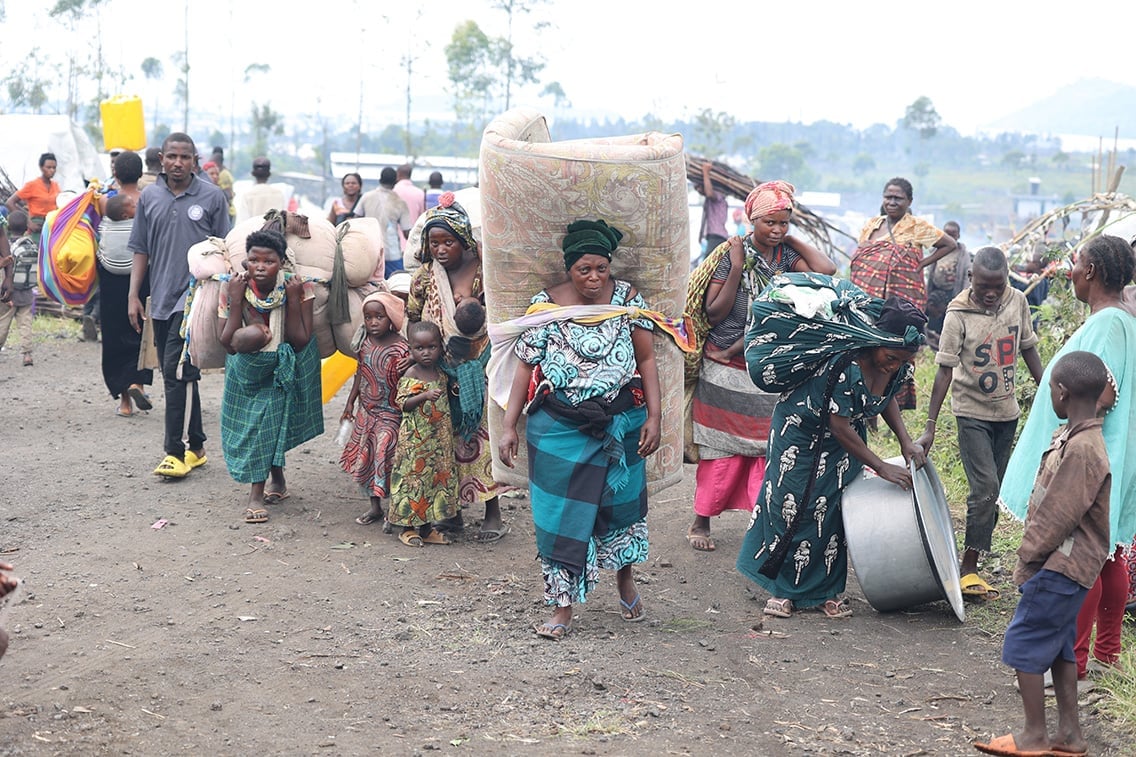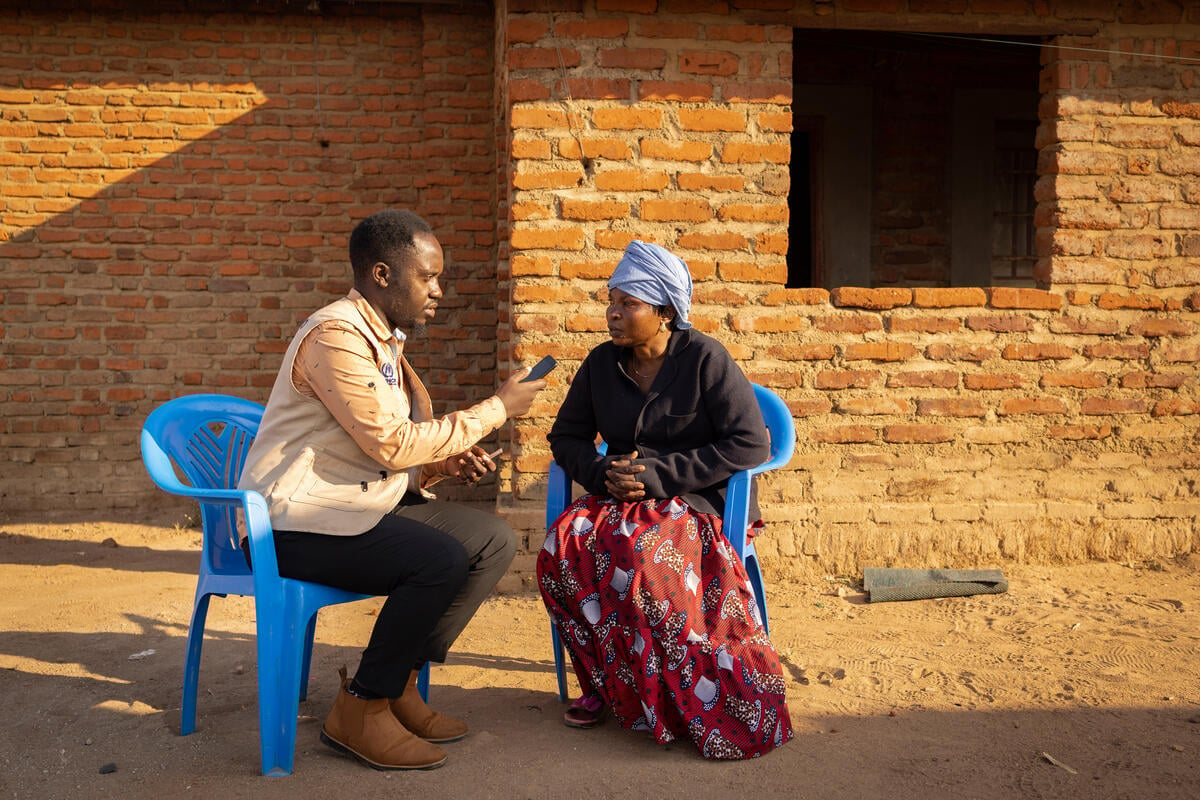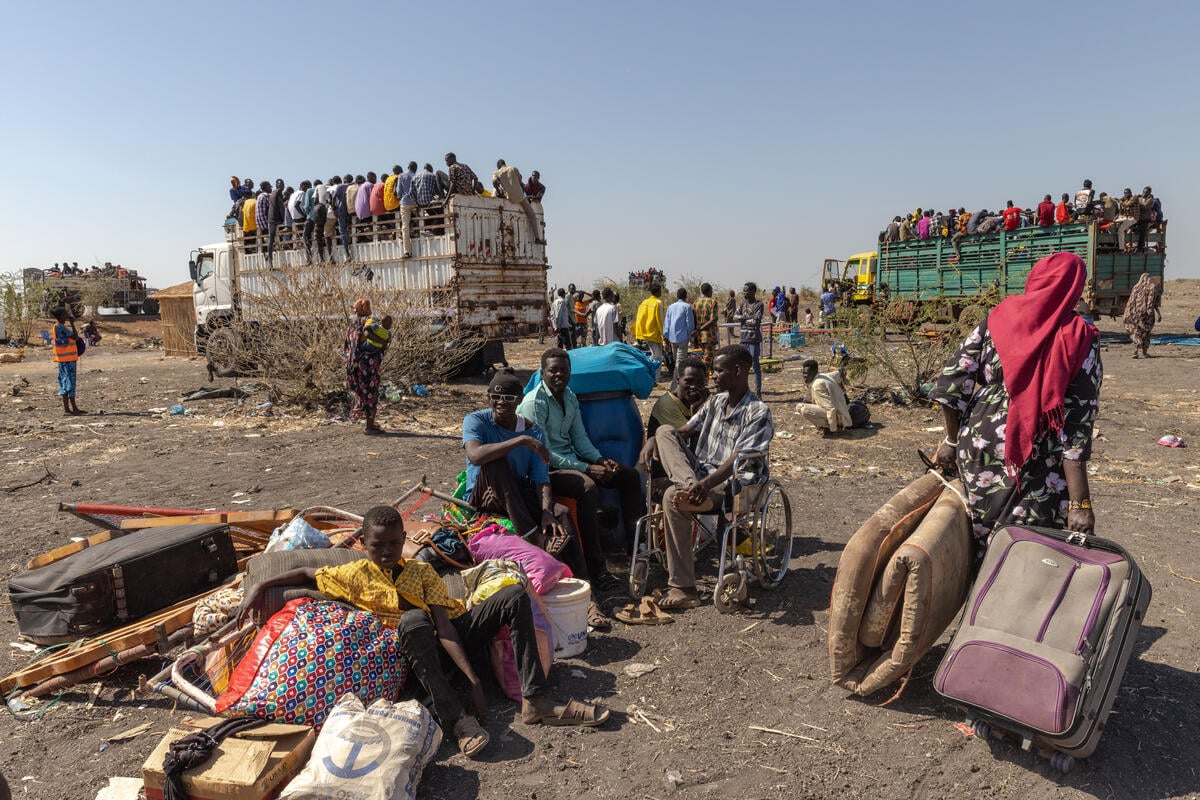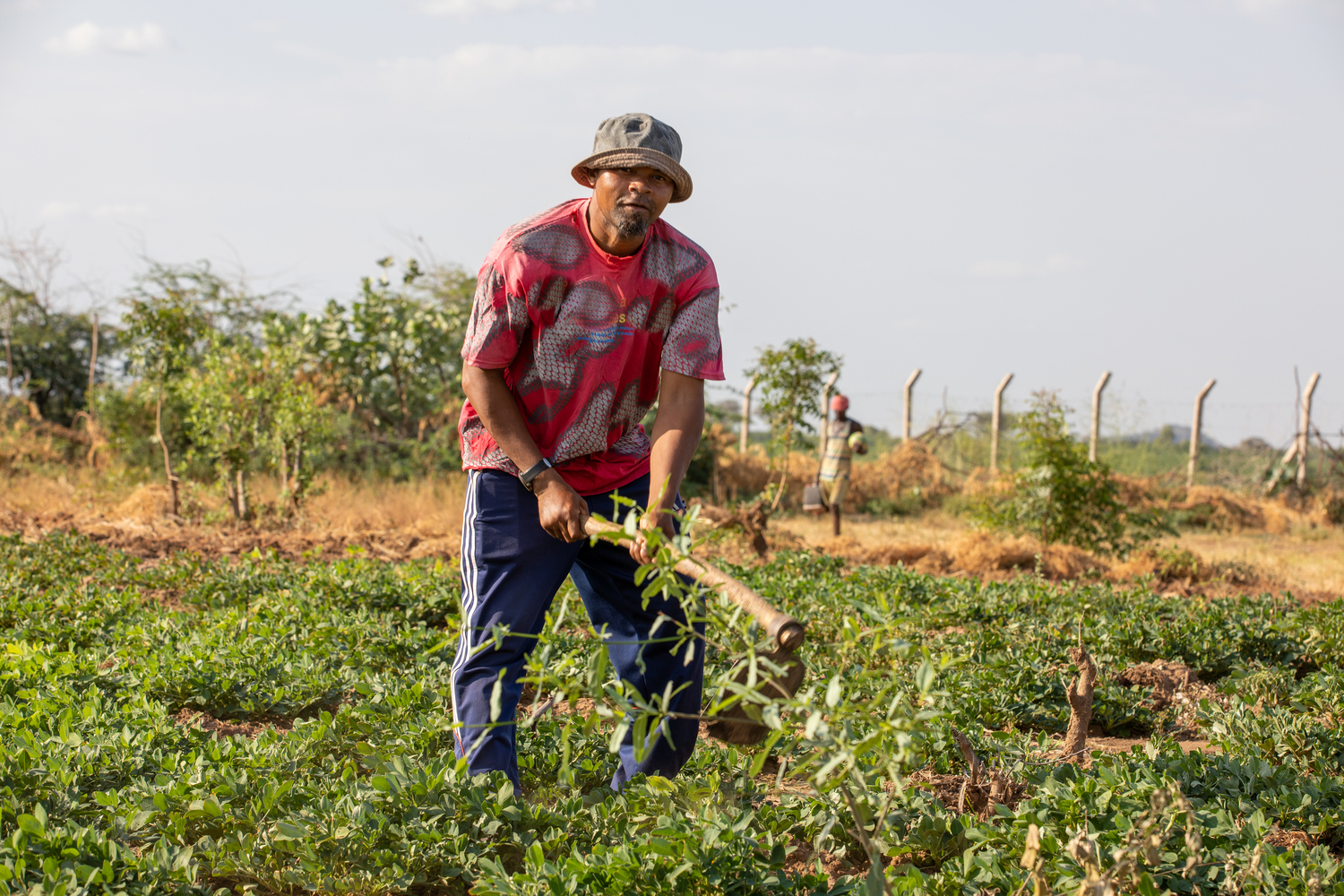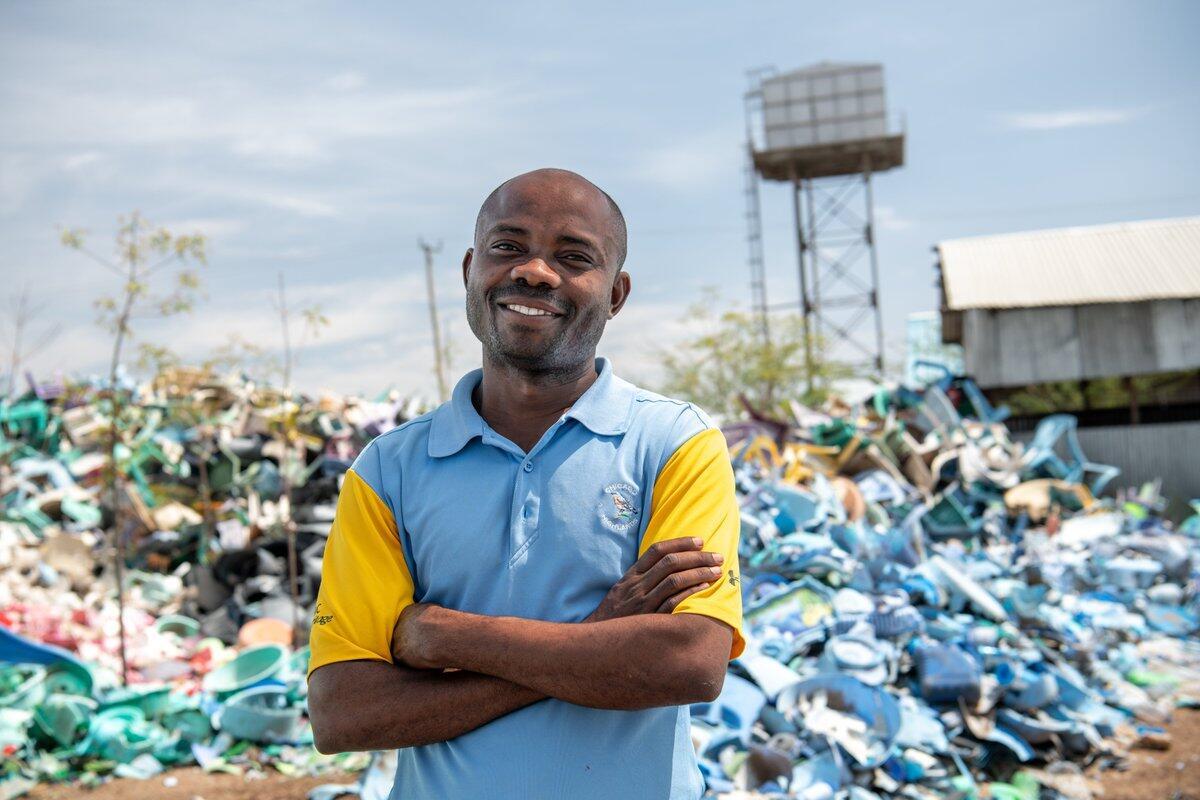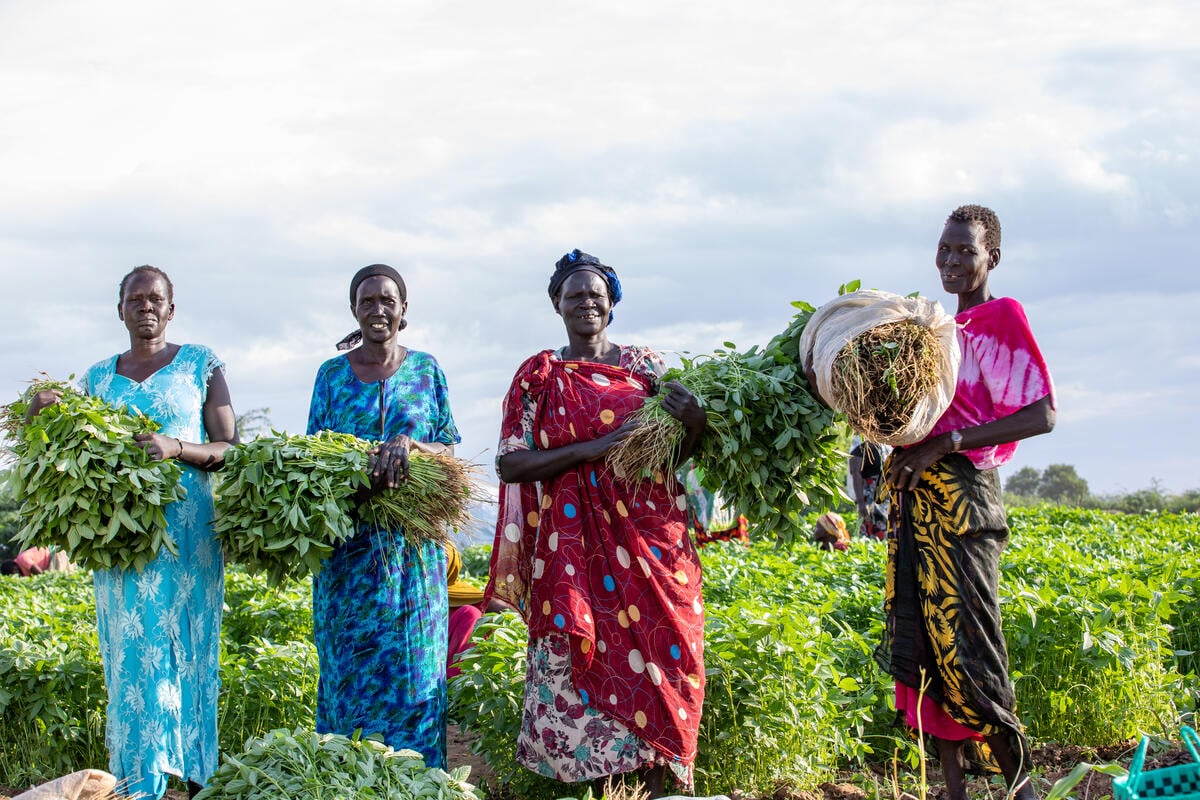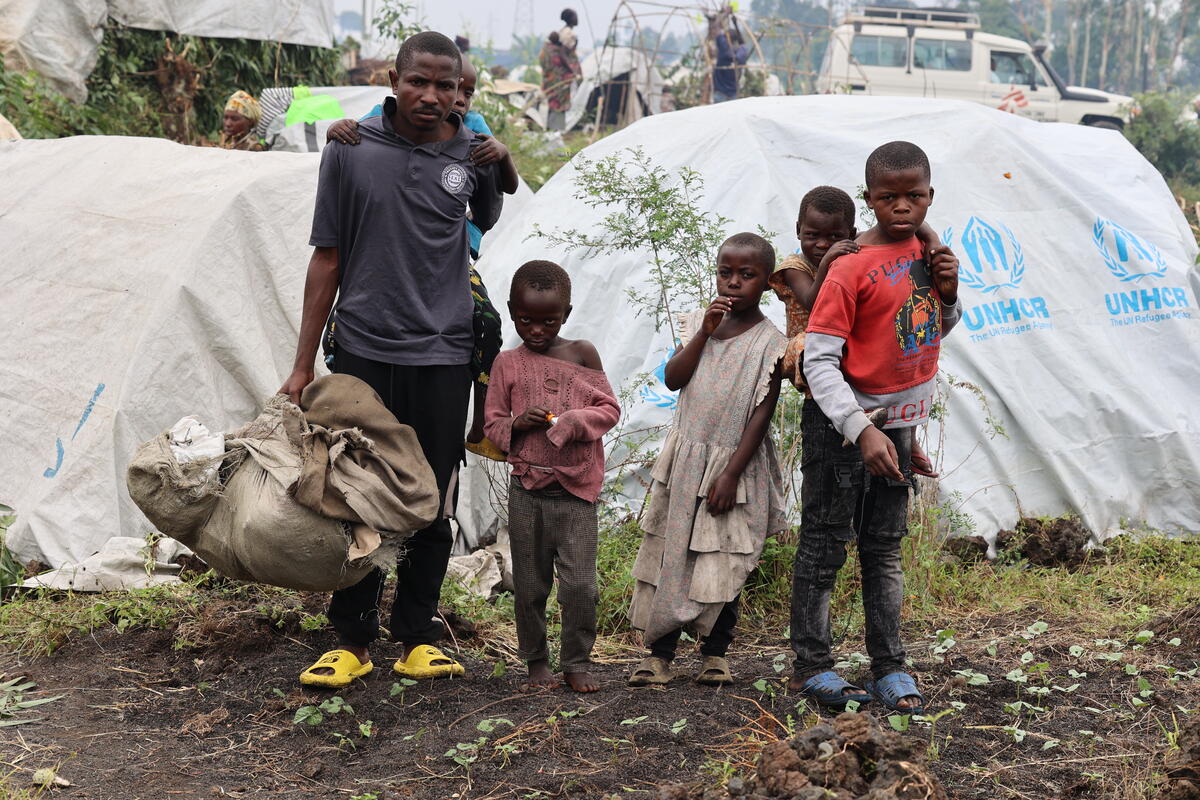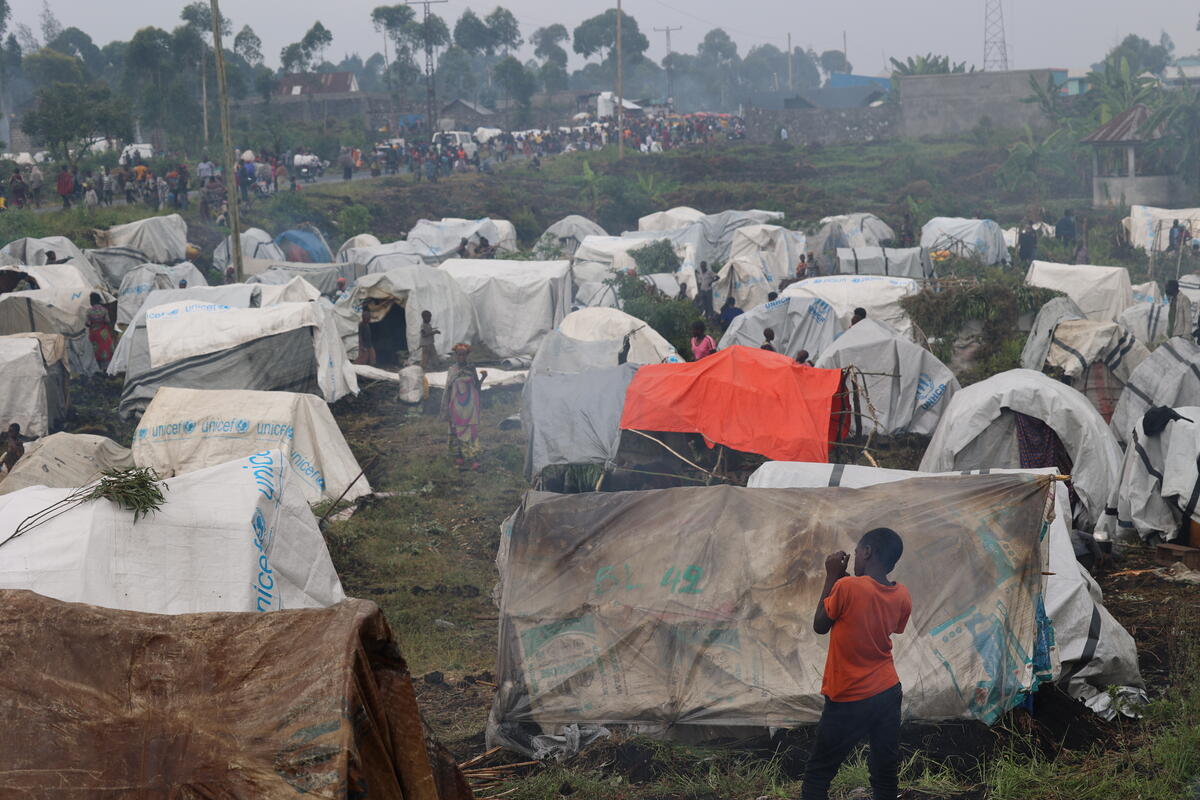DR Congo emergency
DR Congo emergency
Conditions for displaced people in the Democratic Republic of the Congo (DRC) are worsening on a daily basis as attacks on sites for the internally displaced increase, resources run dry, and many find themselves unable to meet their most urgent needs without humanitarian assistance.
people are internally displaced across the DRC (as of 30 November 2024)
refugees and asylum-seekers in the DRC
DRC refugees and asylum-seekers in neighbouring countries
Visit the data portal for more statistics
Since March 2022, successive waves of violence have displaced 4.6 million people in North and South Kivu Provinces alone, amid an appalling spike in human rights abuses against civilians.
The latest bout of fighting in and around Goma, capital of North Kivu Province, started in December 2024 and quickly escalated, displacing half a million people in just a month. Sites sheltering people displaced by earlier bouts of violence were hit by bombs, claiming the lives of dozens of civilians, including children. Many were forced to flee once again, without access to shelter, food or basic services.
The risk of further displacement is high as conflict and insecurity continue to dominate the region. Protection needs are spiralling as cyclical violence prevents displaced populations from returning to their homes and livelihoods, while conditions in sites where they have spontaneously settled deteriorate.
Major risks are multiplying and compounding the hardships already faced by displaced people, including an outbreak of mpox in 2024 and a marked increase in gender-based violence (GBV) perpetrated against vulnerable women and girls. In North Kivu alone, reported cases of GBV rose from 20,771 in early 2023 to 27,328 in the same period in 2024, with rape comprising 63 per cent of incidents.
Across the DRC, the demand for emergency aid is growing exponentially, with 27 million people in need of humanitarian assistance in 2025. Without a solution to the conflict in the eastern provinces, the humanitarian and displacement situation will only deteriorate.
“We had a good life. There’s no way to go back home, everything has been destroyed. All I’m asking for is peace.”
What is UNHCR doing to help?
UNHCR and partners continue to deliver life-saving assistance to displaced populations where the security situation allows, but humanitarian access is severely restricted in eastern DRC. Funding for our operations is also critically low, meaning that difficult decisions must be made to prioritize the needs of the most vulnerable.
UNHCR acts as lead and co-lead on the provision of shelter, protection and camp coordination and management (CCCM), in close collaboration with other UN agencies and partners.
It provides tarpaulin-walled shelters, blankets, cooking pots and menstrual hygiene kits for women and girls who make up the majority of those displaced.
UNHCR also leads efforts to improve access to protection services like psychosocial support to treat trauma, with a particular emphasis on the needs of vulnerable groups such as women, children, the elderly and people with specific needs.
The delivery of emergency assistance continues despite severe underfunding in the DRC. By the end of 2024, UNHCR’s US$311 million plan to assist both internally displaced people and refugees in the DRC was only 44 per cent funded. In 2025, UNHCR needs $226 million to respond to the protracted emergency in the DRC but as of the end of January, had only received 10 per cent of that amount.
Are you a refugee or asylum-seeker? Find information about your rights and available services on our HELP site.
Are you looking for data on displacement in the DRC? Visit the UNHCR data portal for the latest data and statistics on refugees and other displaced persons.
For information on UNHCR's operational response, budgets and funding, please visit the DRC situation page on Global Focus.



